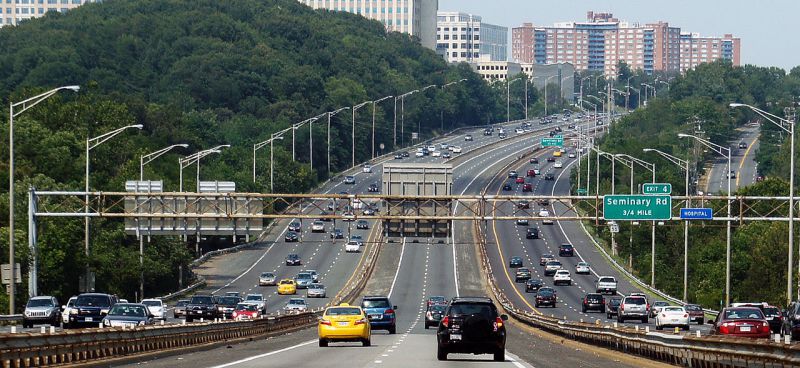One of the biggest reforms of federal transportation policy in recent memory came this January, when U.S. DOT issued a rule requiring state DOTs to measure the impact of their projects on greenhouse gas emissions. With transportation now accounting for more carbon pollution in America than electricity, the rule injects much-needed transparency and accountability into transportation policy and the tens of billions of dollars that state DOTs spend each year.
But with the Trump administration looking to undo as much of the Obama legacy as possible, in July U.S. DOT announced it would “indefinitely delay” the rule. The thing is, federal rules don’t work like that. Presidents don’t get to pick and choose which ones they comply with.
So in August, the Natural Resources Defense Council filed suit against the Trump Administration to force compliance.
Now, the NRDC’s Amanda Eaken at the Natural Resources Defense Councilwrites that nine states have filed a parallel lawsuit to compel the administration to uphold the law:
The full list of plaintiffs includes California, the California Air Resources Board, Iowa, Maryland, Massachusetts, Minnesota by and through Minnesota DOT, Oregon, Vermont, and Washington.
The states in the case seek a declaration that the Trump Administration’s delay and suspension of the GHG Measure without notice and comment violated the Administrative Procedures Act (APA), and an injunction ordering defendants to end the suspension of the GHG Measure.
These states are filing this litigation because they are seeking to protect their interests in protecting their citizens’ health and welfare, and in safeguarding their citizens from the adverse effects of climate change.
The government’s response to the states’ complaint will be due in late November.
More recommended reading today: Urban Review STL says St. Louis has yet to adopt NACTO’s best practice for bus stops: sidewalk expansions, called “bus bulbs,” that let buses remain in the travel lane instead of merging in and out of traffic. And Bike Delaware reports that a precedent-setting package of bike safety laws is on its way to the governor’s desk and should become law on October 5.






